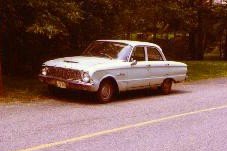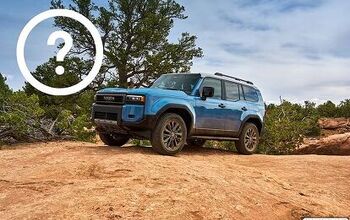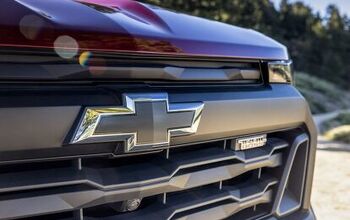Piston Slap: Holzman and the Hybrid Hill Climber
TTAC’s very own David Holzman writes:
How high could a Prius or Insight climb before the battery would run so low as to cease contributing to horsepower? In other words, If I lived at the top of Skyline Drive and worked in Palo Alto (or had a similar commute somewhere else), would the electric boost cut out on the way home? How much elevation could either car cope with? And once the battery has bottomed out, how weak is the car going to feel? I’m guessing not nearly as bad as my then-8-year-old ’62 Falcon, which I could barely push over 30 in second, climbing the mountains in Wyoming, Utah, Nevada, and California. Still, would someone with this sort of commute want to avoid a hybrid?
Sajeev answers:
The short answer is you must always test a vehicle in your daily commute before you buy.
Here’s the long answer: hybrids with a small displacement IC engine don’t much care for hills. Or extreme temperatures: even my Lexus GS450h tester never went north of 25mpg, after denying myself the luxury of air conditioning in the heat and humidity of a Houston summer. Which is somewhat beside the point. But hybrids do hate less-than-ideal driving conditions far more than any other vehicle. Except your ’62 Falcon.
Right. So back to your commute: I can’t find any concrete info on battery life in relation to elevation and climate. I’m no Michael Karesh, but hybrids haven’t been around long enough to get a fair cost-benefit analysis in America’s diverse geographies.
Driving a hybrid in your conditions (using accessories like A/C and the stereo) is not unlike Captain Mike’s less than flattering test of the Prius. While you may not bottom out at Mike’s 17.5 mpg, odds are you will drain the battery on the way home, retiring the battery pack faster because of the daily cycling. And rest assured, you’ll pay through the nose for that privilege.
A “clean” diesel might work better for this terrain. Whether or not it’s cleaner and more cost effective than a hybrid (or a gasoline vehicle at fire sale pricing) is up for debate. So, Best and Brightest, let’s have at it.
[send your technical questions to mehta@ttac.com]
More by Robert Farago
Latest Car Reviews
Read moreLatest Product Reviews
Read moreRecent Comments
- Danddd Or just get a CX5 or 50 instead.
- Groza George My next car will be a PHEV truck if I can find one I like. I travel a lot for work and the only way I would get a full EV is if hotels and corporate housing all have charging stations.I would really like a Toyota Tacoma or Nissan Frontier PHEV
- Slavuta Motor Trend"Although the interior appears more upscale, sit in it a while and you notice the grainy plastics and conventional design. The doors sound tinny, the small strip of buttons in the center stack flexes, and the rear seats are on the firm side (but we dig the ability to recline). Most frustrating were the repeated Apple CarPlay glitches that seemed to slow down the apps running through it."
- Brandon I would vote for my 23 Escape ST-Line with the 2.0L turbo and a normal 8 speed transmission instead of CVT. 250 HP, I average 28 MPG and get much higher on trips and get a nice 13" sync4 touchscreen. It leaves these 2 in my dust literally
- JLGOLDEN When this and Hornet were revealed, I expected BOTH to quickly become best-sellers for their brands. They look great, and seem like interesting and fun alternatives in a crowded market. Alas, ambitious pricing is a bridge too far...


































Comments
Join the conversation
I made the decision to get a hybrid for a commute much like you describe - over 1000 feet of elevation change. In the downhill direction, nearly infinite gas mileage. Going up, it sucks, but it's probably imperceptibly worse than a non-hybrid. On average, I'm pretty happy. And yes, going up the battery will get down to the minimum and the engine will do all the work, so then it's your call on whether the engine has enough power to suit your needs. I've found that the Ford/Mazda 2.5L is strong enough for me.
Okay so the mountains I live in aren't 10k feet high but we're at a more manageable 6000 feet. My commute involves climbing about 1000 feet almost immdiately in the morning with then a nice easy downhill for about 6 miles followed by *fairly level* ground for the next 20 or so. My starting point is about 1000 feet above my finish point so we'll call it a 2000 foot elevation change with the mountain in the middle. In my 2000 Insight I start off in the morning with about half a charge, at the base of the hill I just punch it and have found that I reach zero charge just as I reach the crest. I then basically coast the rest of the way to work and get a full charge by the time I'm there. On the way home I find that I can keep momentum up without being a rolling roadblock just fine until I hit the steep part of the hill again where I punch it and again run out of charge right before the peak. I gain about half my charge back before I turn into my driveway. Since I've got the 5-spd it's simple to just downshift if necessary. I've burned out the charge before even reaching the bottom of the steep part and have been just fine downshifting a couple of times and still been able to maintain road speed (60mph) up the hill. Average mpg for the trip to work is 75, home is 80. I've found that by exercising the battery from full to empty in this matter has ceased all recalibrations.